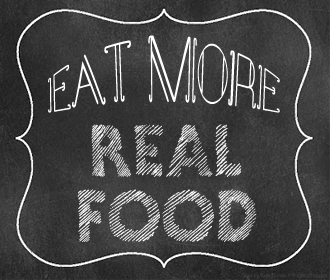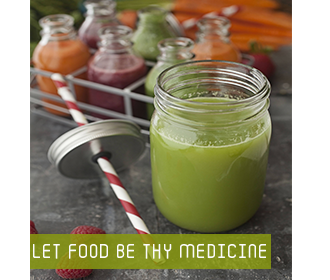Pregnancy is an exciting time. Your body is changing, and you are preparing for a new life. It can also be a time of worry. Pregnant women worry about what foods they should be eating to support their growing baby, and it can be hard to know which foods to avoid.
Did you know that ‘moms-to-be’ should not eat packaged luncheon meats? Or that they should stay away from certain types of fish? Read on for some foods to avoid, and recipes to help support a healthy pregnancy.
What do pregnant women need to avoid?
- Wash fruits and vegetables thoroughly. Bacteria can be on the surface of these foods. Never eat unwashed produce. It is also important to thoroughly cook meats, poultry and eggs, as they could contain a parasite that could be passed on to the baby.
- Avoid raw fish as it is more likely to contain parasites and bacteria that could result in sickness.
- Avoid Luncheon meats. Cured meats, hot dogs, ham, salami, bologna, bacon, and sausage contain nitrites, nitrates and nitrosamines. These food additives work as preservatives, and the studies that have been done on them with pregnant women have generated mixed results. These types of meats are also high in added salts. Packaged lunch meats may also contain Listeria, bacteria that can cause devastating damage to a fetus. Instead of luncheon meats, cook up extra organic chicken breasts or a larger organic roast and use the leftover meat to make sandwiches for lunch.
- Avoid eating certain fish. Yes, certain types of fish should not be eaten during pregnancy, while others in moderation have been shown to be safe. Fish can be a great source of high quality protein and essential fatty acids for a growing baby. Unfortunately, fish often contain high levels of mercury and other toxins, which can affect a growing fetus and potentially result in nervous system damage. So what fish should you avoid? Avoid these large and long-living fish: swordfish, king mackerel, tilefish, fresh and frozen tuna, and shark. Also limit the amount of locally caught fish you consume, and if you are eating fish from your area check out the environmental reports online to ensure there are no advisories (check out Health Canada’s website). According to Health Canada’s research, eating small amounts of salmon and canned “light” tuna (avoid canned white tuna-also known as albacore tuna- as it can contain higher levels of mercury) is allowed during pregnancy, just limit it to no more than once a week. Need a good recipe with Tuna in it? Try Jenn’s Improvised Tuna Panini and ensure you use canned light tuna in the recipe.

- Avoid farmed salmon. A 2004 study in the United States looked at the levels of PCBs, a toxic chemical, in salmon. Farmed salmon contained higher levels of these chemicals than wild salmon (Beck 30). Instead, choose wild caught salmon. Check out the Environmental Working Group website for more fish to avoid, and for what fish to limit to once a month.
- Avoid unpasturized foods such as milk, cheese and juices because of the potential for them to contain bacteria. Avoid soft cheeses such as feta, Brie, Panela, Roquefort, and Camembert as they are often made with unpasteurized milk. Use hard cheeses in recipes.
- Avoid alcohol and limit your caffeine intake. The effect that caffeine has on a growing baby is still unclear to researchers. High levels may be associated with miscarriage and low birth weights, but the amount that this may occur at is still unknown (Beck, 2004). Remember that caffeine is not just found in coffee, but in tea, cola’s and even chocolate.
- Avoid pates and meat spreads, as well as raw sprouts (cook sprouts before eating to kill bacteria that may be present).

What about peanuts? A study done at the at the University of Manitoba in 2004 looked at the link between pregnant mom’s eating peanuts and peanut allergies in children (Healthy Eating During Pregnancy,2006). The researchers found that “there was no difference in the rate of nut allergies between the children of mother’s who ate nuts during pregnancy and the children of mother’s who didn’t” (79-80). Avoid nuts and seeds if you have an allergy.
Pregnant women should also avoid herbal remedies, including many types of herbal teas, unless specified by a health care practitioner. Only a Naturopathic Doctor or Midwife should tell you what herbs or herbal teas are safe for you to take while pregnant. When in doubt, ask your doctor.
So what can you eat?! Lots of foods are safe and nutritious for pregnant women. Beans and legumes are filling, so check out our Black Bean and Corn Salad, which can be turned into a wrap or eaten as a filling and tasty salad. Quinoa is loaded with protein and can be cooked up and eaten as a stir-fry, or cooked up and chilled and made into a delicious salad. Check out this Quinoa Salad from the Bundles of Energy website. It will leave you feeling satisfied! Concerned about getting enough protein? Choose a variety of sources of protein, such as lean ground chicken (organic) or lean ground bison (free range), as well as beans, lentils and raw nuts and seeds. Try my Lentil Hot Pot recipe for yummy and wholesome dinner idea (and take the leftovers for lunch)! Whenever possible try to eat organic foods as they contain less toxic chemicals than industrial grown foods.
If you are unsure about certain foods and how they may affect your baby, always talk to your doctor or midwife. For more information on what foods to eat and what foods to avoid when pregnant, check out some of these books and webistes:
Health Canada’s website http://www.hc-sc.gc.ca/fn-an/nutrition/prenatal/index-eng.php
Nutrition Guide to a Healthy Pregnancy by Leslie Beck, RD. (2004)
Healthy Eating During Pregnancy by Dr. Laura Riley, OB/GYN and Stacey Nelson, MS, RD, LDN (2006)









